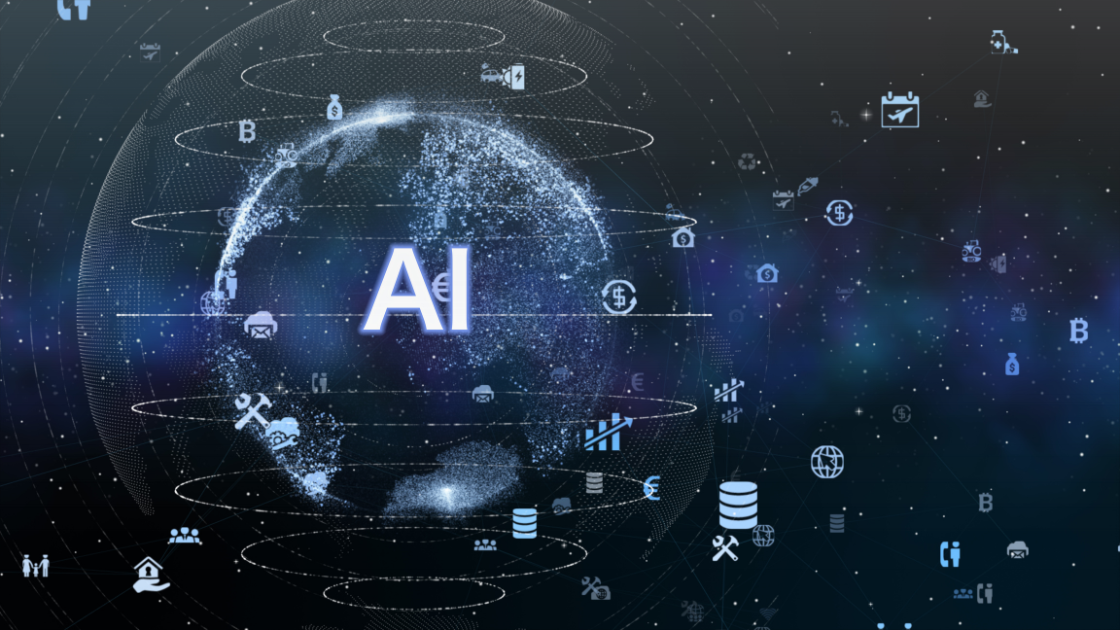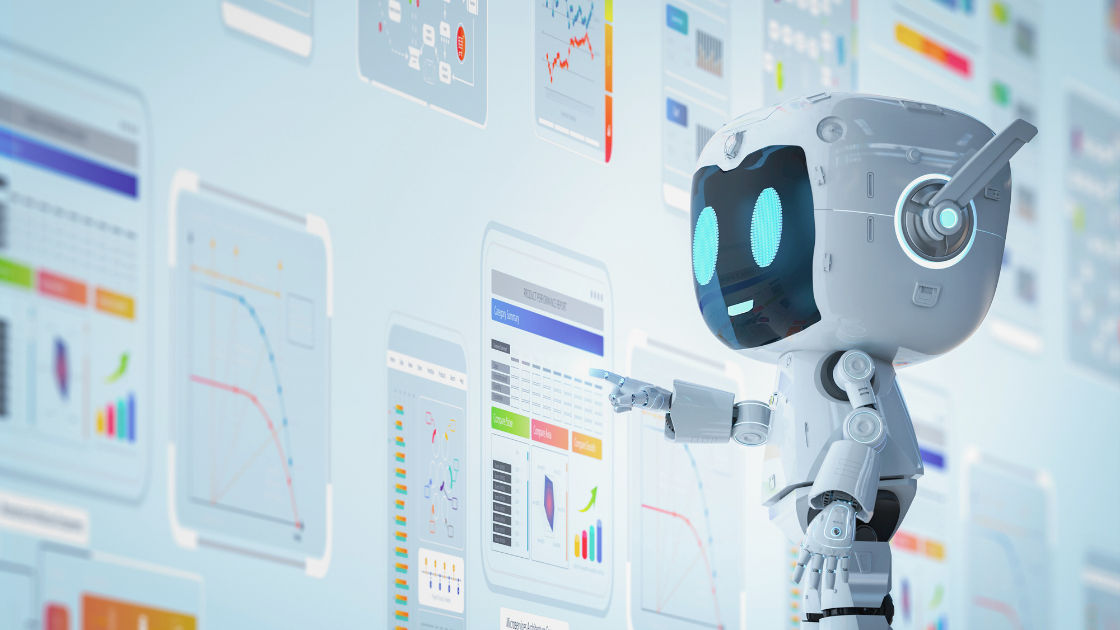How Artificial Intelligence Is Redefining the Way Businesses Operate, Innovate, and Grow in the Digital Age — Insights by Zeeshan Hayat

Artificial Intelligence (AI) is no longer the future—it’s the present. Across industries, from startups to global enterprises, AI is transforming how businesses operate, innovate, and grow. What began as a technological advantage has now become a fundamental driver of competitive strategy and business evolution. The digital age demands speed, accuracy, and insight—and AI delivers all three, reshaping the very DNA of modern business.
Reimagining Business Operations
At the heart of every organization lies its operations—the systems, processes, and people that keep it running. AI is revolutionizing these foundations by automating routine tasks, enhancing accuracy, and enabling smarter decision-making.
AI-powered systems can handle data entry, inventory management, customer queries, and even financial reporting with minimal human intervention. For instance, intelligent automation tools like robotic process automation (RPA) can manage repetitive workflows 24/7, reducing costs and increasing efficiency.
Beyond efficiency, AI introduces adaptability. Real-time analytics tools help businesses monitor operations, detect issues instantly, and make swift adjustments. The result is not just faster performance—but smarter, more resilient organizations ready to navigate constant change.
Enhancing Decision-Making with Data Intelligence
Businesses today generate massive amounts of data—from customer behavior and market trends to logistics and employee performance. AI transforms this raw data into actionable intelligence, enabling leaders to make informed, data-driven decisions.
Machine learning models analyze patterns and predict future outcomes—such as demand fluctuations, customer churn, or product performance—allowing businesses to plan proactively. Predictive analytics is now at the core of strategic decision-making, ensuring companies respond to challenges before they arise.
Moreover, AI tools visualize complex data in intuitive dashboards, empowering teams at every level to understand insights instantly. In the digital economy, data is power—and AI ensures that businesses can harness it effectively.
Driving Innovation Through Intelligent Automation
Innovation has always been the lifeblood of successful businesses. But in the digital era, innovation cycles are shorter, expectations higher, and competition global. AI is redefining innovation by accelerating creativity, product development, and problem-solving.
For example, AI-powered design and prototyping tools can create product concepts in minutes. Natural language processing (NLP) enables teams to brainstorm and refine ideas collaboratively using intelligent assistants. In research and development, AI identifies emerging trends and technologies, helping organizations stay ahead of the curve.
By automating repetitive parts of the innovation process, AI frees human creativity for what it does best—thinking boldly and solving meaningfully.
Personalizing Customer Experiences at Scale
Customer experience has become the ultimate differentiator in the digital age. Businesses that truly understand and anticipate customer needs stand out. AI enables precisely that—personalization at scale.
Through machine learning, businesses can analyze customer data to tailor recommendations, offers, and experiences in real time. AI chatbots and virtual assistants provide instant, personalized support around the clock, while sentiment analysis helps brands gauge customer emotions and satisfaction levels.
These interactions go beyond convenience—they build trust. By understanding preferences and anticipating desires, AI helps brands foster deeper emotional connections with customers, strengthening loyalty and advocacy.
Redefining Marketing and Sales
The digital marketplace is saturated, and capturing consumer attention is harder than ever. AI gives businesses a competitive edge by transforming marketing and sales strategies.
Predictive analytics identifies the most promising leads, optimizing conversion rates. AI-driven marketing platforms segment audiences, personalize messaging, and even adjust campaigns in real time based on performance data. In sales, intelligent CRM systems recommend next best actions, helping teams close deals more effectively.
Ultimately, AI enables businesses to be more agile—reacting instantly to market shifts and delivering the right message to the right audience at the right moment.
Building Smarter, More Efficient Supply Chains
Supply chain disruptions have become one of the biggest global business challenges. AI is providing solutions that improve visibility, accuracy, and resilience.
From demand forecasting to logistics optimization, AI enhances every stage of the supply chain. Intelligent algorithms can predict inventory needs, identify potential bottlenecks, and optimize delivery routes, saving both time and resources.
For industries like retail, manufacturing, and e-commerce, these improvements translate to smoother operations, lower costs, and higher customer satisfaction.
Empowering the Workforce with AI Collaboration
While many feared AI would replace jobs, it’s increasingly clear that the technology’s greatest value lies in augmentation—not substitution. AI is empowering professionals across departments by automating repetitive work and providing insights that enhance decision-making.
In marketing, AI tools suggest campaign ideas. In HR, they analyze talent data to improve hiring and retention. In finance, AI detects anomalies and prevents fraud. By removing the burden of repetitive tasks, AI enables employees to focus on creativity, empathy, and strategy—skills that machines cannot replicate.
The result is a more productive, fulfilled, and innovative workforce—one that thrives alongside technology rather than competes with it.
Fueling Growth Through Agility and Scalability
AI enables businesses to grow smarter, not just faster. By automating core operations and optimizing resource allocation, AI supports scalability without proportionally increasing costs.
Startups can leverage AI tools to compete with established players by operating leaner and responding faster. Larger enterprises use AI to streamline global processes, identify new market opportunities, and optimize pricing models.
In every case, AI makes growth more sustainable—helping businesses adapt to change with agility and confidence.
AI and Ethical Business Transformation
As businesses increasingly rely on AI, ethical considerations have become paramount. Responsible data use, algorithmic transparency, and fairness must be central to every AI strategy.
Purpose-driven organizations understand that innovation should serve humanity, not exploit it. By integrating ethical principles into AI design, businesses not only build trust but also differentiate themselves in a crowded market. Conscious innovation—where profit aligns with integrity—will define the next chapter of business growth.
Conclusion: The Intelligent Enterprise of the Future
Artificial intelligence has evolved from a support tool into a strategic partner in business transformation. It redefines operations, fuels innovation, enhances customer experiences, and empowers people—all while driving sustainable growth.
In the digital age, success belongs to businesses that embrace AI not just as technology, but as a mindset—a way of thinking that values data, creativity, and purpose equally.
The companies leading the future are those that see AI not as a replacement for human intelligence, but as a bridge to something greater: a world where innovation is smarter, decisions are faster, and business growth is more meaningful than ever before.
About The Hayats












